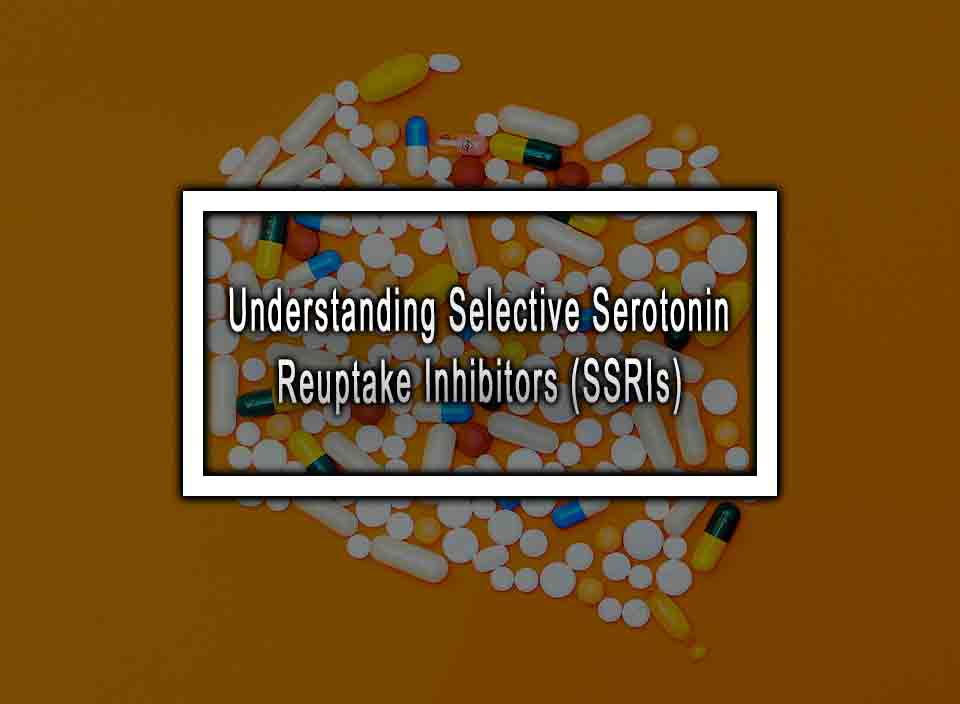Table of Contents
ToggleUnlocking the Potential of Selective Serotonin Reuptake Inhibitors (SSRIs): A Comprehensive Guide
Revolutionizing the field of mental healthcare, Selective Serotonin Reuptake Inhibitors (SSRIs) have proven to be a game-changer. These medications have gained immense popularity for their effectiveness in treating various mental health conditions such as depression, anxiety disorders, and obsessive-compulsive disorder (OCD). In this article, we delve into the world of SSRIs, shedding light on their mechanism, benefits, potential side effects, and essential considerations for those considering these medications.
The Mechanism: How SSRIs Work to improve mental health
Selective Serotonin Reuptake Inhibitors, as the name suggests, work by inhibiting the reabsorption of a neurotransmitter called serotonin in the brain, allowing it to remain active for longer durations. Serotonin is a chemical responsible for regulating mood, emotions, and feelings of well-being. By maintaining higher serotonin levels, SSRIs create a favorable environment for the stabilization of mental health.
Breaking the Chains of Depression and Anxiety
Depression and anxiety disorders affect millions worldwide, but SSRIs have emerged as a ray of hope for those grappling with these conditions. Extensive research has shown that SSRIs significantly alleviate symptoms of these mental health challenges, improving overall quality of life. By targeting the root causes of these disorders, SSRIs enhance brain chemical balances, enabling individuals to regain control over their emotions and regain a sense of normalcy.
Potential Side Effects: Navigating the Landscape
While SSRIs can be beneficial, it is vital to understand potential side effects that may be associated with their usage. Common side effects such as nausea, headaches, and sexual dysfunction are often temporary and tend to subside as the body adjusts to the medication. However, it is essential to consult with a healthcare professional to explore personalized options and minimize the likelihood of adverse reactions.
Essential Considerations Before Embarking on an SSRI Journey
Before initiating treatment with SSRIs, several crucial considerations should be evaluated. Factors like individual medical history, ongoing medications, and allergies must be thoroughly discussed with a healthcare professional. It is important to remember that SSRIs may interact with other medications, potentially impacting their effectiveness or causing adverse reactions. Hence, a comprehensive evaluation by a medical expert is indispensable.
Conclusion
Selective Serotonin Reuptake Inhibitors (SSRIs) have undoubtedly revolutionized mental healthcare, offering a beacon of hope for those battling depression, anxiety, and obsessive-compulsive disorder. By understanding their mechanism of action, potential benefits, and crucial considerations, individuals can make informed decisions regarding SSRIs when working in collaboration with healthcare professionals. Remember, seeking guidance from a medical expert ensures personalized care, allowing you to unlock the true potential of SSRIs and embark on a journey toward improved mental wellness.
Selective Serotonin Reuptake Inhibitors FAQ
Here are the most common questions about selective serotonin reuptake inhibitors.
1. How do SSRIs work?
SSRIs work by blocking the reabsorption (reuptake) of serotonin in the brain. By doing so, they increase the amount of serotonin available in the brain, which helps improve mood and relieve symptoms of depression, anxiety, and other related conditions.
2. How long does it take for selective serotonin reuptake inhibitors to start working?
The time it takes for SSRIs to start working varies from person to person. Some individuals may start experiencing improvements in their symptoms within a few days, while others may take several weeks. It is important to give the medication enough time to build up in the system and reach its full effect. It is recommended to continue taking SSRIs as prescribed, even if there is no immediate improvement.
3. What are the common side effects of selective serotonin reuptake inhibitors?
Common side effects of SSRIs may include nausea, diarrhea, insomnia, drowsiness, dizziness, sexual dysfunction, weight changes, and dry mouth. These side effects are typically temporary and may subside as the body adjusts to the medication. It is important to discuss any side effects with a healthcare provider.
4. Can SSRIs be used in children and adolescents?
SSRIs can be prescribed to children and adolescents for certain conditions, such as depression and anxiety disorders. However, their use in this population requires careful monitoring and consideration of potential risks and benefits. It is recommended to work closely with a healthcare provider when considering SSRIs for children and adolescents.
5. Can SSRIs interact with other medications?
Yes, SSRIs can interact with other medications. It is important to inform your healthcare provider about all medications, including over-the-counter drugs and herbal supplements, that you are taking. Certain medications, such as monoamine oxidase inhibitors (MAOIs) and some blood thinners, can have potentially dangerous interactions with SSRIs. It is important to discuss any potential drug interactions with a healthcare provider.












